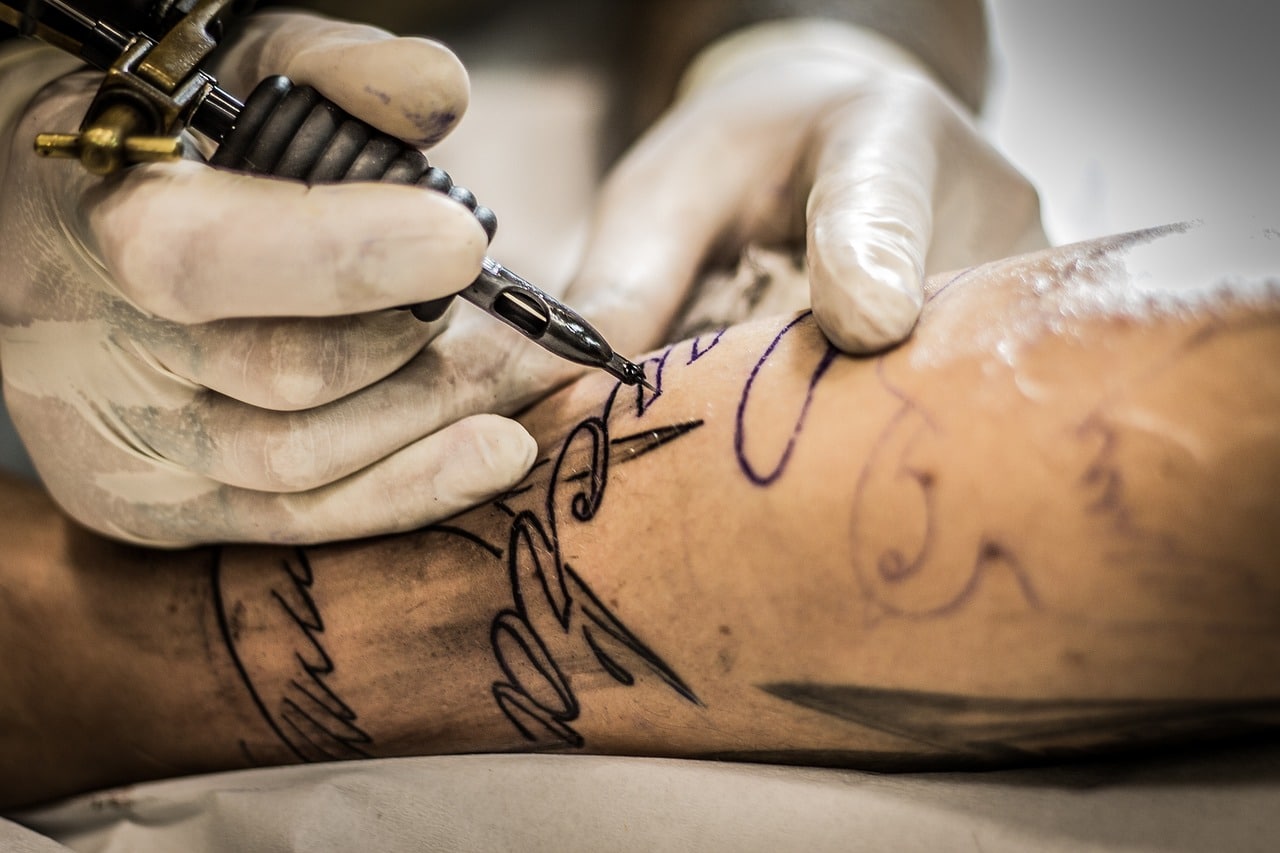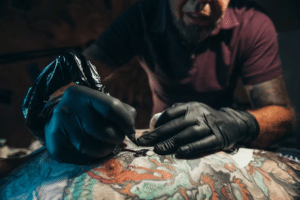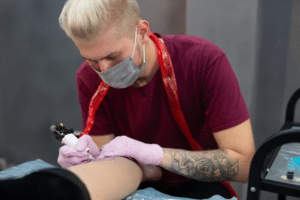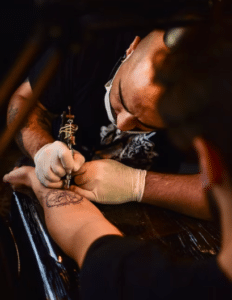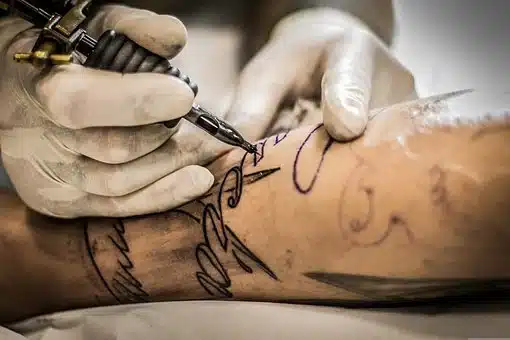
A tattoo is a permanent body modification that involves the injection of ink into the skin. Tattoos are popular among people who want to display their personality or express their feelings. A person can get a tattoo done by a professional or do it themselves with help from a kit.
Since the ink is made with various chemicals, some still experience an itchy tattoo. If you’re experiencing an itchy tattoo, you can do a few things to get relief. Keep reading to learn how to stop tattoo itching!
Causes of an Itchy Tattoo

Here are some of the causes of an itchy tattoo:
Normal healing process
The skin is a very delicate organ that is capable of regenerating itself. In the case of tattoos, this normally happens for about two to six weeks, depending on the size and location of the tattoo. After being injured, the skin will send out new cells to replace those damaged and destroyed. In tattoos, this process can cause an itchy feeling because the new cells are trying to grow in the same place where there was already ink. Over time, the itchiness should go away as the ink fades away and is replaced by new cells.
Infection
Itchy tattoos can be the result of an infection. Tattoos can become infected when someone scratches or bites their tattoo, which then causes bacteria to enter the skin and spread. Infected tattoos may also develop redness, swelling, and pus. If left untreated, an infection may lead to permanent scarring or even loss of the tattoo.
Allergic reaction to the pigment
When someone is allergic to a pigment in tattoo ink, they can experience an itchy, red rash on the skin where the ink was applied. The rash can appear anywhere on the body where the pigment is used and often spreads easily to other parts of the body. In extreme cases where the allergy is severe, anaphylactic shock may occur. If you are allergic to any pigment in tattoo ink and have a rash after getting a tattoo, consult with your doctor to determine if you have an allergy and what steps you need to take to minimise your reaction.
Preexisting skin conditions
Skin conditions can cause an itchy tattoo. Some of the most common skin conditions that can lead to an itchy tattoo are psoriasis, eczema, and dermatitis. Many people with these conditions also have other symptoms like redness, itchiness, and rash on their skin. When these symptoms are combined with a tattoo, the itching can be incredibly severe. Tattoo artists should be aware of preexisting skin conditions and be able to provide relief for their clients.
Sarcoidosis
Sarcoidosis is a rare, life-threatening disease that can cause an itchy tattoo. The disease is caused by the sarcoidosis parasite, which attacks the body’s lymphatic system. Symptoms of sarcoidosis include fever, chest pain, shortness of breath, and muscle pain. If left untreated, sarcoidosis can lead to lung cancer or death. It is important to get treatment for sarcoidosis if you notice any signs or symptoms of the disease.
Ink contamination
Ink contamination is one of the most common causes of an itchy tattoo. When ink and other debris get trapped in the skin, it can cause an intense itch. Recently, scientists have uncovered a potential culprit of ink contamination: bacteria. When ink is drawn into the skin and then touched by the hands of the tattooist or client, germs can be spread and cause an itchy reaction.
Treating an Itchy Tattoo
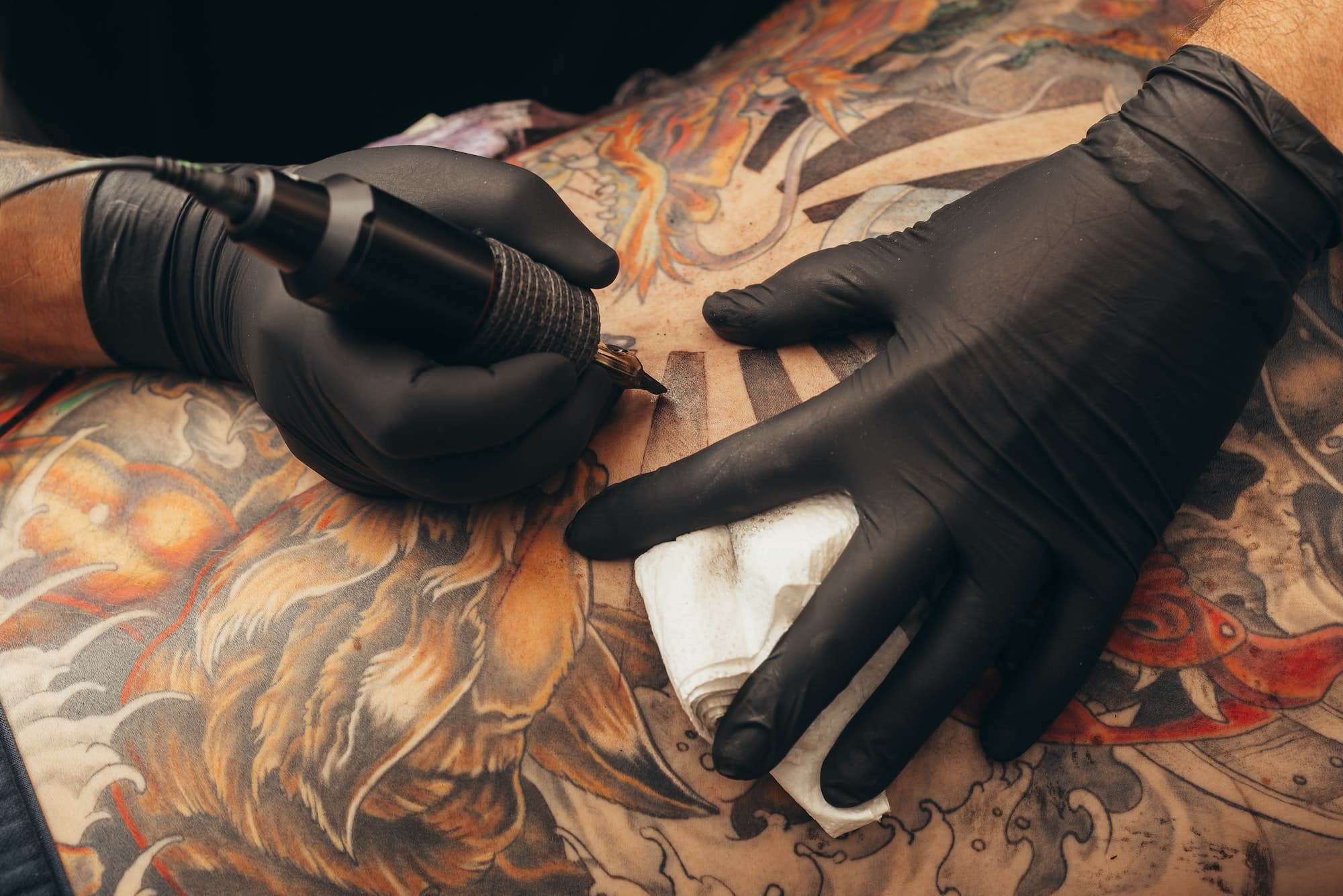
There are a few ways to treat an itchy tattoo. Here are some of the things you can do to relieve itchiness around your tattoo:
OTC creams and ointments
OTC creams and ointments are effective treatments for an itchy tattoo. These products can be applied directly to the tattoo or surrounding skin and often contain ingredients that help reduce inflammation and itching. The most common OTC products used to treat tattoos include hydrocortisone cream, calamine lotion, and benzyl alcohol cream. It is important to use caution when using these products, as overuse may lead to further skin irritation.
Keep the area moisturised.
Itching tattoos can be a real nuisance and often require treatment to relieve the pain and itching. One of the simplest ways to treat an itchy tattoo is to keep the area moisturised. This will help the skin to retain moisture, which will help prevent itchiness and pain. When treating an itchy tattoo with moisturiser, you want to avoid using sulfur or salicylic acid products, as they can irritate the skin even more. Your best bet for a moisturiser is a water-based product that contains anti-inflammatory agents like glycerin or fatty acids. You should also apply a thin layer of moisturiser every evening before bed and leave it on until morning.
Cool compresses
Itching tattoos can be a frustrating and difficult problem to treat—cool compresses containing ice, water, and salt work well to reduce inflammation and itchiness. Apply the compress for 10 minutes, three times a day.
Oatmeal baths (old ink only!)
Try an oatmeal bath if you’re itching to get rid of an itchy tattoo. This remedy is said to help soothe and calm the skin while removing any built-up debris that may be causing the irritation. Make a batch of oatmeal and put it in a large bathtub. Add enough water to cover the oatmeal and let it soak for 10-15 minutes. Rinse the tattoo with warm water and pat it dry. Apply moisturiser if desired.
When to See a Doctor?
When it comes to tattoos, many people are content with the results they get. However, a select few experience an itchy tattoo that won’t go away. If you are experiencing an itchy tattoo, you should see a doctor as soon as possible. It is important to rule out any underlying medical conditions causing your symptoms and any potential treatments. If your itchy tattoo is not responding to topical treatments or getting worse, you may need to see a doctor for an evaluation.
Conclusion
In conclusion, many factors can contribute to tattoo itch, but the most common culprit is infection and allergy. If you’re experiencing severe itching, it’s important to consult with a dermatologist or doctor. They may be able to prescribe topical treatments or prescribe anti-inflammatory medication. In the meantime, keep your tattoo clean and moisturised to help alleviate the itch. Consider using a cool compress to reduce inflammation or an oatmeal bath to remove the unnecessary debris around your tattoo.
Was this article helpful? Let us know in the comments!
FAQs
Can I Scratch My New Tattoo?
There’s a lot of information about tattoos and whether or not you can scratch them. Scratching a tattoo won’t cause it to come off. However, scratching can damage the ink and may even lead to infection. If you scratch a new tattoo too hard, you may end up with a scar. If this happens, see your tattoo artist to help remove the scar safely.
How to prevent tattoo infection?
Just because you have a tattoo doesn’t mean you’re automatically immune to infection. Here are some tips for your tattoo aftercare:
- Wash your hands often and use antibacterial soap.
- Avoid touching your face or eyes while you’re washing; do this instead with a wet cloth or sponge.
- Don’t share personal items, like razors or toothbrushes, with other people who have tattoos.
- Keep the area around the tattoo clean and dry – don’t let it get wet, covered in sweat, or infected.
- If you develop an infection, see a doctor as soon as possible for treatment.
How long does it take to heal an itching tattoo?
It can take a few days to a couple of weeks for an itching tattoo to heal. Depending on the severity of the itch, you might need to use over-the-counter or prescription creams or ointments to relieve it. You can also use a fan and cool air to help speed up the tattoo healing process.

